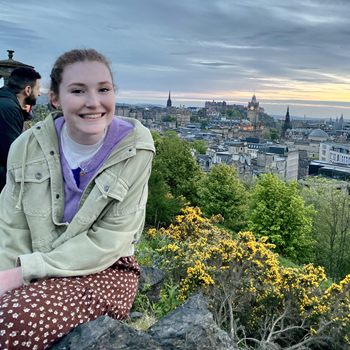Year 5 medical student, Amberley Evans weighs up the benefits and risks of medical TV.
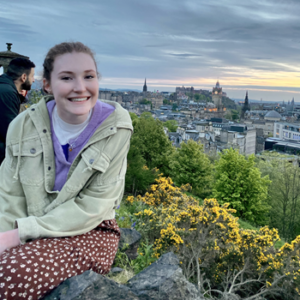 When they asked me why I wanted to be a doctor at my medical school interview, the most truthful answer would have been that it looked fun on the telly.
When they asked me why I wanted to be a doctor at my medical school interview, the most truthful answer would have been that it looked fun on the telly.
I’ve been watching doctors on television since before I can remember. As a youngest child with three older siblings and limited access to the TV remote, my medical education was less Operation Ouch and more Bizarre ER, but regardless, I was thrilled.
By the time I was a few years older, my dad and I had formed a habit of staying up late to watch 24 Hours in A&E, and it was on one of these evenings that I remarked that being a doctor looks great, but one would have to be very clever, and so it wasn’t for me. He said, “why not?”, and the rest is history (and a decade of good old academic perfectionism).
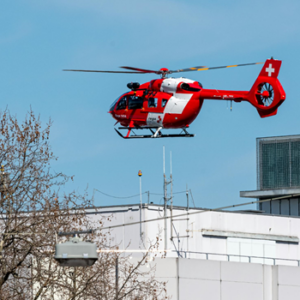 Medical TV as a medical student
Medical TV as a medical student
Now less than two years away from graduation, I have mostly swapped evenings on the sofa watching hospital action for days taking part in it, but medical television still holds some of that magic: nothing cures me of med school burnout quite like the childish joy I feel in front of Helicopter Medics.
As a medical student, the medical documentary has become something of a resource to be strategically minded; an efficient highlight reel of medicine at its most glamorous with some nostalgia, scientific interest, and – I admit it – thrills to remind me why I’m here in the first place.
And luckily for my hopes of graduating, the genre is alive and well; indeed, the next instalment of the BBC’s Surgeons: At the Edge of Life is currently being filmed in Edinburgh’s very own hospitals. But as I view these programmes from an increasingly ‘insider’ perspective, I find myself asking: why do medical documentaries exist, and what do they mean for the medical profession and its public image in 2024?
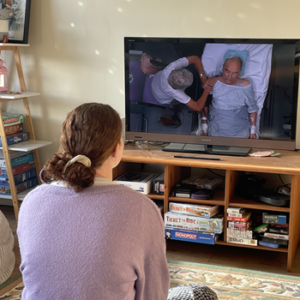 The influence of medical TV on non medics
The influence of medical TV on non medics
Because if medical television taught 8-year-old me what a doctor is, it’s reasonable to assume that it’s influencing the rest of its audience’s understanding too. So, naturally, I turned to my dad – my closest available telly-watching layperson – for his perspective. Why does he enjoy watching these programmes? He told me that for him, they’re a life-affirming exercise in human emotion. For an hour or so, you find yourself in the shoes of those taking part in the highs and lows of people’s lives. In this way then, the doctor-on-television can be understood as a ‘hero’ in two senses – they are the star of a high-stakes TV drama, but they are also a moral hero as they embody healthcare itself, its principles of compassion and equity, and our health service, which is held with huge national pride.
But are these medical documentaries painting a false picture of the jewel in our country’s crown? Their portrayal of the ‘front line’ with its cutting-edge technology, high stakes, and immaterial waiting times certainly makes for good telly, but it seems a far cry from the experiences of most. Is such an idealised snapshot irresponsible? Does it create false expectations, or breed disillusionment? It is easy to see how footage of expensive and specialised surgery could seem less awe-inspiring and more a frustrating taunt for those struggling to make a GP appointment.
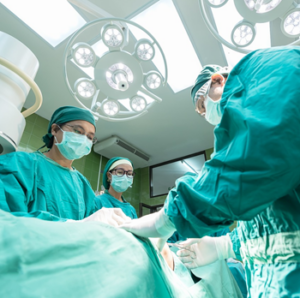 Admittedly, many medical documentaries have tried to acknowledge this dissonance. The BBC’s Ambulance is built upon a portrayal of grass-roots healthcare persisting against all odds; the programme covered last year’s strike action, and the occasional adrenaline-fuelled RTC is far outnumbered by its scenes of paramedics caring for our most vulnerable. Such fly-on-the-wall programmes are also brought back down to earth by prime-time journalism such as Newsnight and Dispatches, which offer viewers a more politicised perspective on our health system, if they’d like to hear it.
Admittedly, many medical documentaries have tried to acknowledge this dissonance. The BBC’s Ambulance is built upon a portrayal of grass-roots healthcare persisting against all odds; the programme covered last year’s strike action, and the occasional adrenaline-fuelled RTC is far outnumbered by its scenes of paramedics caring for our most vulnerable. Such fly-on-the-wall programmes are also brought back down to earth by prime-time journalism such as Newsnight and Dispatches, which offer viewers a more politicised perspective on our health system, if they’d like to hear it.
Inspiring the next generation of medics
But despite all of that, I can’t find it in my heart to feel cynical about Helicopter Heroes. Because these programmes are still a true depiction of medicine, even if only a small part of it. As medical television fights to both shape and reflect public opinion – as well as keep its viewers’ attention – it risks reaching for two extremes, but healthcare does not deserve to be either demonised or deified. It is a serial drama with infinite and varied episodes, and if we want the next generation of aspiring medics to understand its true heroics, we must make space for the TV doctor to be a nuanced protagonist. And with 24 Hours in A&E entering its 34th series, it seems there is plenty of room.

